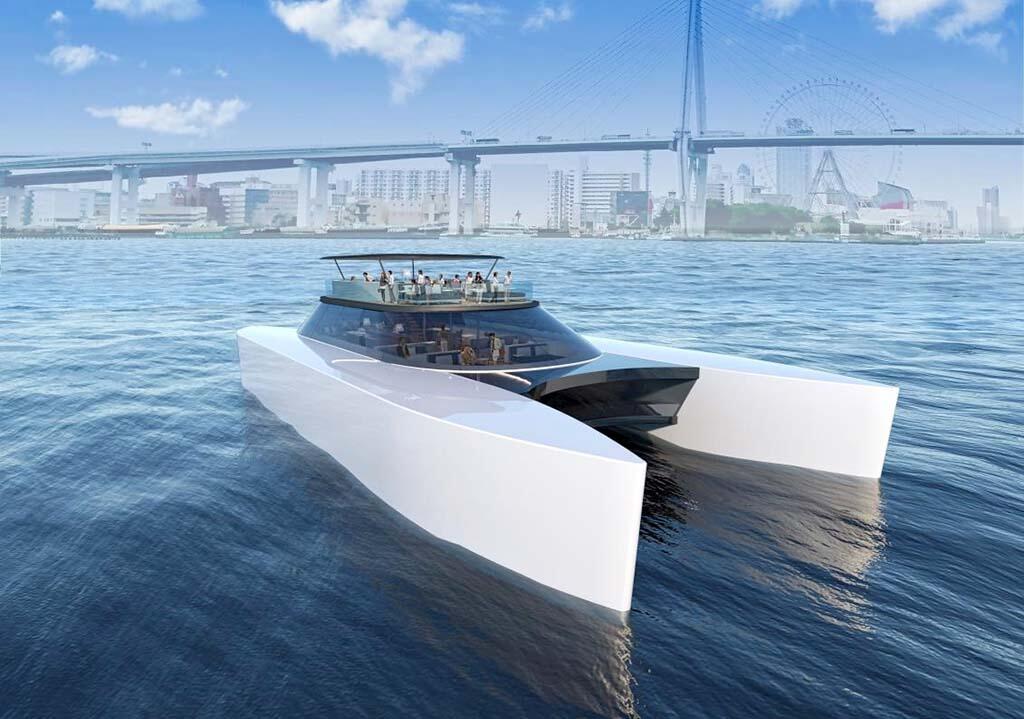Iwatani Corporation and Tokyo University of Marine Science and Technology, working in collaboration with Kansai Electric Power Company and Namura Shipbuilding, announced on July 21 that they have begun research toward the realization of hydrogen fuel cell powered ships and marine hydrogen fueling stations. They are aiming for commercialization at Expo 2025 in Osaka. The research period has been scheduled from July this year to the end of February 2025.
Unlike conventional ships, hydrogen fuel cell ships can achieve high environmental performance by suppressing the emission of CO2 and environmentally hazardous substances while driving and are expected to improve comfort during boarding through elimination of noise, vibration, and fuel odor. The joint research began with the adoption of a NEDO project focusing on industry-academia-government collaboration to expand and develop hydrogen fuel cell utilization. The aim is to realize the commercial operation of hydrogen fuel cell vessels, widely publicize the potential of hydrogen energy worldwide at Expo 2025 and contribute to zero emissions in the field of marine transportation in the future. In addition, a demonstration experiment of a hydrogen fueling station for ships will be conducted.
The collaborative group have been working on feasibility studies since November last year, and have been studying ship specifications, operation routes, and energy management, among other aspects. They were able to verify the feasibility through these studies, and so decided to begin development.
The ship to be developed is a hybrid hydrogen fuel cell passenger ship that utilizes hydrogen as an energy source and is expected to have a capacity of approximately 150 people, equivalent to 60-100 tons. The development is based on the "Raicho series" of ships developed by Tokyo University of Marine Science and Technology. Iwatani Corporation will be in charge of business management, development, and construction of hydrogen fueling stations for ships in this joint research.
Iwatani has a track record of selling and operating hydrogen fueling stations for electric vehicles ahead of their competitors. Since the company began handling hydrogen in 1941, it has built an integrated nationwide network, ranging from manufacturing to transportation, storage, supply, and security. In 2006, the first liquid hydrogen production plant in Japan was constructed in Sakai City, Osaka, and currently, six plants at three bases have an annual capacity of 120 million cubic meters of liquefied hydrogen.
The Tokyo University of Marine Science and Technology utilizes the technology and skills acquired during the construction of their "Raicho series," ships such as the rapid charging battery propelled ship "Raicho I" equipped with lithium-ion batteries, which the Tokyo University of Marine Science and Technology quick-charging battery propulsion ship development project group has been implementing since 2008. The university is responsible for the hydrogen supply system and energy management for ships, hull structure design, and demonstration operation, among other responsibilities.

This article has been translated by JST with permission from The Science News Ltd.(https://sci-news.co.jp/). Unauthorized reproduction of the article and photographs is prohibited.




